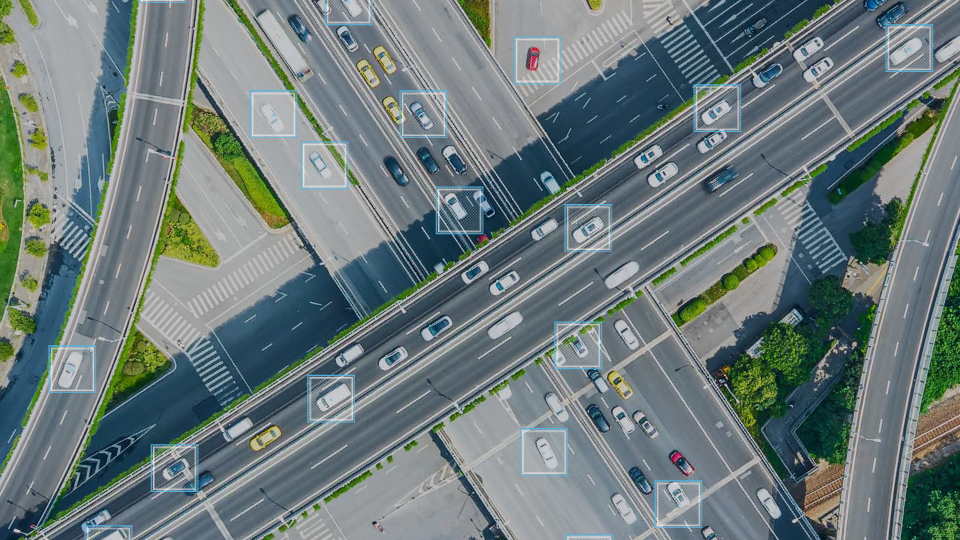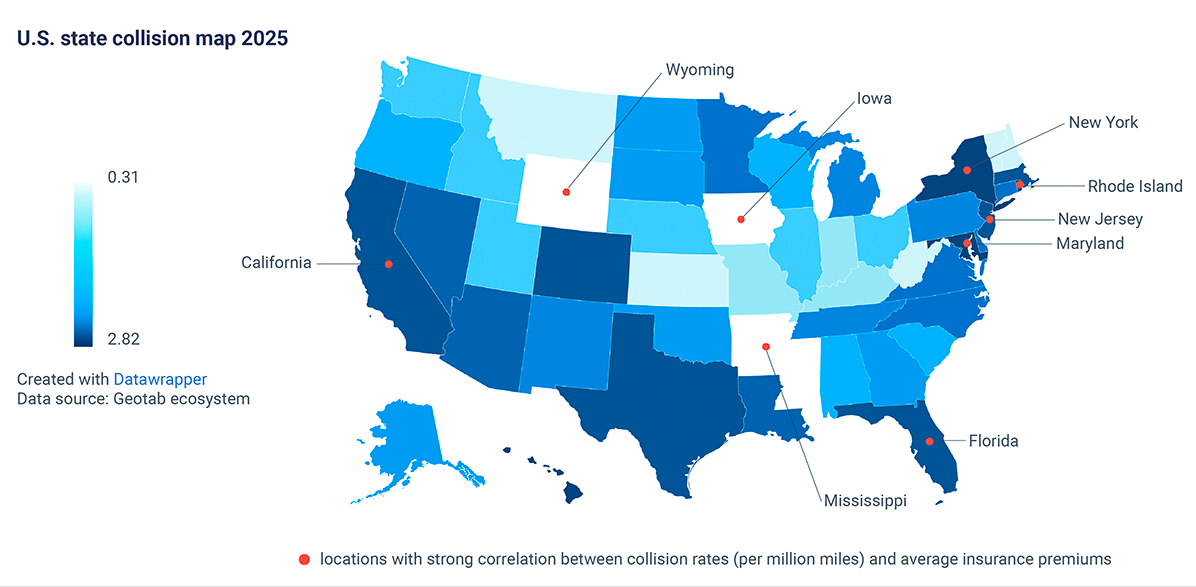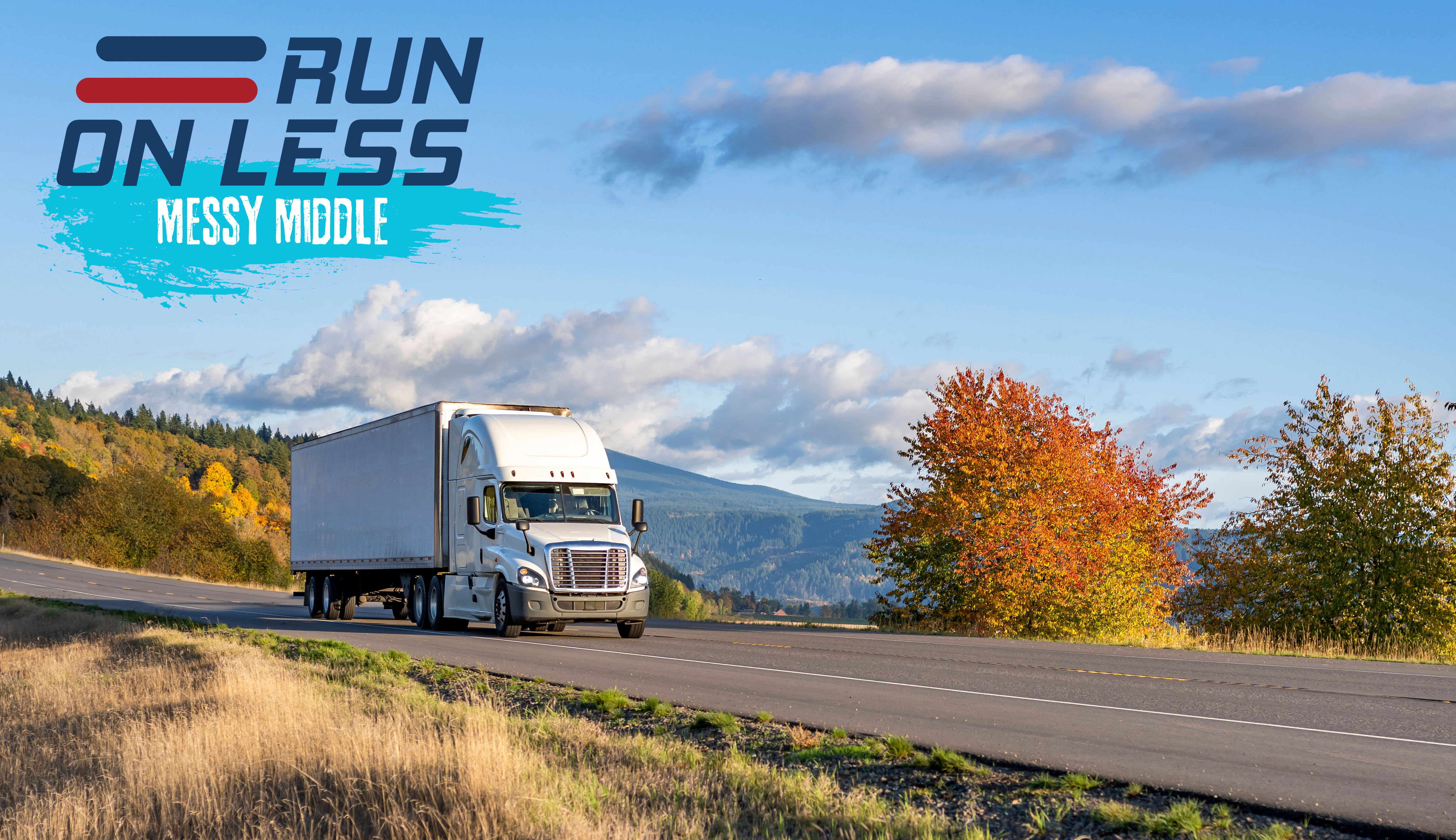EU Data Act overview: What it means for Geotab and telematics
Learn about the EU Data Act, its key objectives and significance for vehicle data access and sharing.

By Travis Evens
Senior Legal Counsel, JD, CIPP/E, CIPM
Oct 8, 2025

Key Insights
- The EU Data Act is an important shift in data control that empowers businesses to choose what is best for them.
- The law empowers users with greater control over raw and preprocessed data, but is not designed to force companies to share their intellectual property or data derived from innovative processing.
- For Geotab customers, the day-to-day experience will feel the same, as Geotab’s data access and ownership policies already align with the Act's core principles.
The EU Data Act is set to transform how businesses access and use IoT data, including vehicle data. Understanding the new rules is crucial to compliance, and will help end users who rely on comprehensive fleet telematics solutions like those provided by Geotab benefit from its provisions.
What is the EU Data Act?
The European Union’s Data Act (Regulation (EU) 2023/2854) is a law that introduces harmonized rules on fair access to and use of data, with a core purpose of making data more accessible and usable, thereby encouraging data-driven innovation and increasing overall data availability.
EU Data Act implementation timeline
The EU Data Act was first published on December 22, 2023. As of September 12, 2025, most aspects of the Data Act became applicable.
A new regulatory framework for telematics
In general, the EU Data Act presents a new regulatory framework relevant to the telematics ecosystem, as well as Geotab and third-party data suppliers such as OEMs. The Data Act is significant because it comes into force at a time when the number of connected devices and the volume of data they generate is growing.
The automotive industry is increasingly reliant on data as a core asset, and potentially faces significant adjustments under the EU Data Act.
It’s important to know that the EU Data Act is not just a compliance hurdle; it is an important shift in data control that empowers businesses to choose what is best for them. It shifts power from manufacturers of connected devices (including connected vehicles) to the users of those devices, in the context of telematics, those being the fleet owners and operators. This change unlocks immense value by fostering an open, competitive ecosystem where the best ideas can win. It gives businesses the freedom to select best-in-class tools and integrate them, ensuring they can harness the full potential of their data to drive efficiency, safety, and innovation.
Geotab’s user-centric approach to data
Geotab's approach to ownership of raw fleet data has always been that, as between Geotab and the customer, Geotab does not own such data. The EU Data Act essentially codifies this user-centric principle into law. The spirit of the Act is to empower users by giving them control over the raw and preprocessed data their activities generate. We don't claim ownership of the raw data; instead, our solutions are designed specifically to facilitate access for our customers, allowing them to export it and use it as they see fit.
A trusted data partner like Geotab serves not only as a primary data source through our own devices but also as an experienced integrator of third-party data streams, providing users with the ability to use that access effectively and intelligently. In an increasingly complex and fragmented data ecosystem, a central, expert aggregator that can harmonize data into a single, actionable source of truth becomes even more important.
To learn more about the EU Data Act and what this regulation means, read our whitepaper: The Future of Fleet Data
Subscribe to get industry tips and insights
Frequently Asked Questions
This Act is intrinsically aligned with Geotab’s long-standing position regarding ownership and access to raw fleet data. Geotab does not claim ownership of this data; rather, its solutions are designed to facilitate access for end-users (especially vehicle fleet owners, operators, and managers) to valuable vehicle data that might otherwise remain inaccessible. Geotab firmly believes that unfettered access to such data fosters a larger, more vibrant telematics ecosystem where all entities that bring value can benefit and innovate.
The EU Data Act will enhance data accessibility and foster data-driven innovation. For example, under the new rules, a fleet manager focused on sustainability could direct their OEM partners (as 'data holders') to stream raw and pre-processed vehicle data—like fuel consumption, idling time, and battery health for EVs—to a third-party analytics platform specially designed for reporting carbon emissions and meeting regulatory requirements. This new service provider wouldn't need to be a hardware expert; they could focus entirely on building the analytics platform since the EU Data Act guarantees them access to the necessary data with appropriate user consent.
The single most critical first step for any company with connected vehicles in the EU is to conduct a thorough data mapping exercise to formally identify their role under the Act. They must understand what data their vehicles and services generate, where it flows, and who has the right and ability to make it available.
This data mapping process is fundamental because the primary obligations of the Act fall on the entity designated as the 'data holder'. Without clearly defining this role, it's impossible to build the processes needed to handle user data access requests, manage third-party sharing, or ensure contracts are compliant.

Senior Legal Counsel, JD, CIPP/E, CIPM
Table of Contents
Subscribe to get industry tips and insights
Related posts


The Simple Truth: Why Rewarding Safe Driving is Your Fleet’s Smartest Business Decision
February 25, 2026
4 minute read

How long do electric car batteries last? The updated guide to real-world EV battery health
January 12, 2026
10 minute read

Run on Less data redefines electric truck viability
December 17, 2025
4 minute read
.png)
From the North Pole to the Highway: How AI and Predictive Insights Get Drivers Home for the Holidays
December 16, 2025
2 minute read
.jpg)